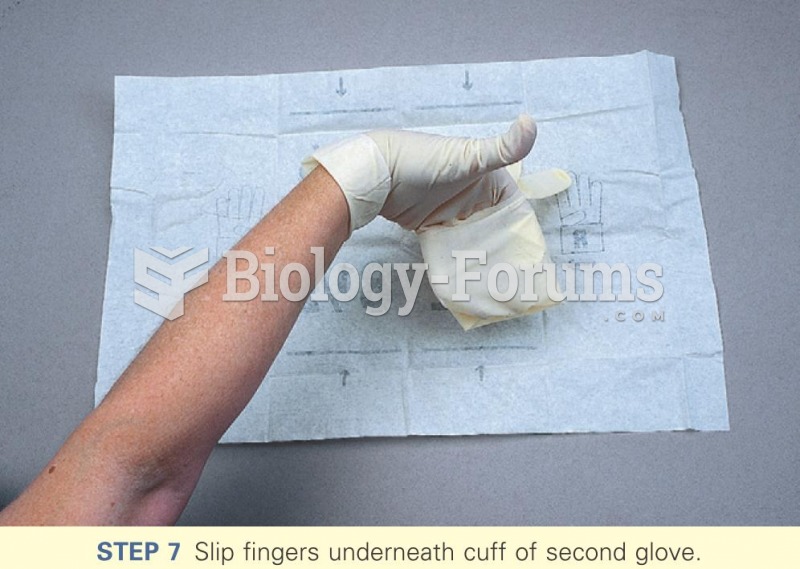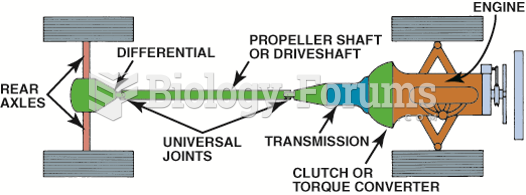|
|
|
Common abbreviations that cause medication errors include U (unit), mg (milligram), QD (every day), SC (subcutaneous), TIW (three times per week), D/C (discharge or discontinue), HS (at bedtime or "hours of sleep"), cc (cubic centimeters), and AU (each ear).
There are more sensory neurons in the tongue than in any other part of the body.
Symptoms of kidney problems include a loss of appetite, back pain (which may be sudden and intense), chills, abdominal pain, fluid retention, nausea, the urge to urinate, vomiting, and fever.
Critical care patients are twice as likely to receive the wrong medication. Of these errors, 20% are life-threatening, and 42% require additional life-sustaining treatments.
Amphetamine poisoning can cause intravascular coagulation, circulatory collapse, rhabdomyolysis, ischemic colitis, acute psychosis, hyperthermia, respiratory distress syndrome, and pericarditis.
 The Racker and Stoeckenius experiment showing that an H+ electrochemical gradient drives ATP synthes
The Racker and Stoeckenius experiment showing that an H+ electrochemical gradient drives ATP synthes
 Papilio machaon caterpillar showing the osmeterium, which emits unpleasant smells to ward off predat
Papilio machaon caterpillar showing the osmeterium, which emits unpleasant smells to ward off predat
 Capuchins use stones to crack open palm nuts in much the same way that chimpanzees in some populatio
Capuchins use stones to crack open palm nuts in much the same way that chimpanzees in some populatio




